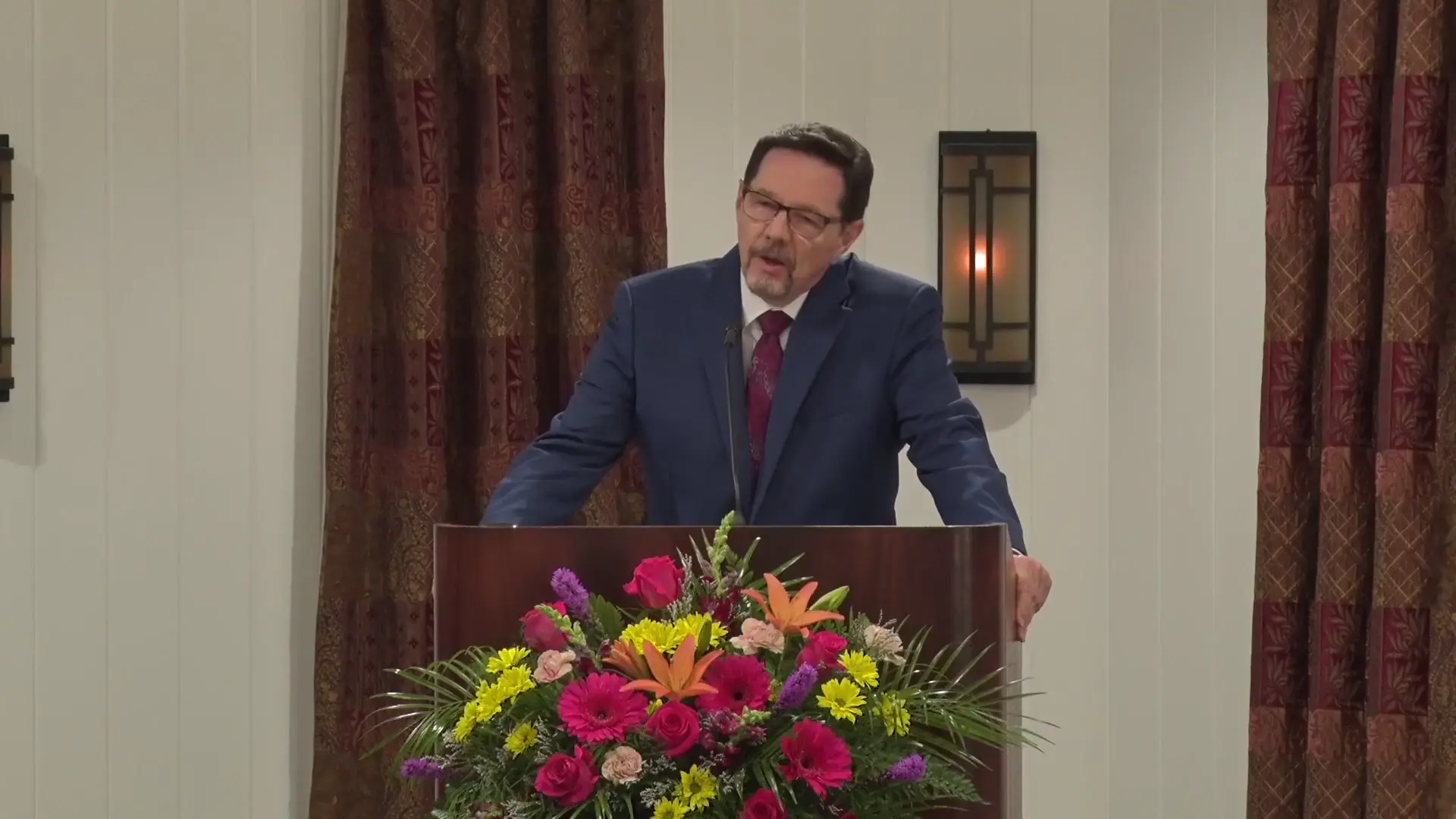Filter by Categories
The Foundation of the World
Sermon by Richard T. RitenbaughThe phrase 'from the foundation of the world' carries profound significance, marking the inception of God's plan and the course of history. It appears in various contexts in the New Testament, often indicating a starting point from which events and divine intentions unfold into the future. In Matthew 13, Jesus speaks in parables, revealing mysteries kept secret from the foundation of the world, signifying the beginning of divine revelation to mankind after the creation of man. Similarly, in the Parable of the Sheep and the Goats, an inheritance is prepared for the blessed from the foundation of the world, highlighting that the plan for the saints' inheritance was set in motion with the creation of humanity in the Garden of Eden. Luke 11 notes that the blood of the prophets has been shed from the foundation of the world, pointing to the early violence against God's messengers, starting soon after creation with events like Cain's slaying of Abel. Hebrews 4:3 states that God's works were finished from the foundation of the world, referring to the completion of His physical creation during the seven days, after which He rested on the Sabbath. Hebrews 9:26 clarifies that Christ did not need to suffer repeatedly from the foundation of the world, but only once to bear the sins of many, underscoring the singular nature of His sacrifice in contrast to ongoing sin since creation. In Revelation 13 and 17, references to names written in the Book of Life from the foundation of the world emphasize the distinction between those called by God and the rest of humanity following the course of this present evil world, which began when Adam sinned and placed himself under satan's influence. This present world, founded on lust, vanity, and pride, is inherently flawed and destined to pass away due to its rotten foundation. In contrast, we await the establishment of Christ's Kingdom, built on a perfect foundation, and look forward to the New Jerusalem, a city with divine foundations crafted by God Himself as the Architect, Engineer, and Builder, ensuring its enduring integrity for all eternity.
In Search of a Clear World View (Part One)
Feast of Tabernacles Sermon by John W. Ritenbaugh (1932-2023)A Christian worldview includes the importance of our calling and the reality of God and His laws. Our worldview determines how we spend our time.
The Spring Holy Days
Sermonette by Ryan McClureWe need to probe into the deeper meaning of the Spring holy days more than we have previously because God's wisdom is unsearchable.
The Miracle of God's Calling
Sermon by Kim MyersDo we appreciate the miracle of our calling, an event which changed our orientation regarding our belief structure, diet, and moral behavior?
Thy Kingdom Come! (Part One)
'Prophecy Watch' by StaffWhile most understand the Kingdom of God represents God's future rule over mankind, many do not realize it also has past and present aspects.
Of God Appointed Life
Sermon by Mark SchindlerWe must trust God's sovereign timing even in grief and sore trials, realizing that life is not random, but God-appointed.
God Works in Mysterious Ways (Part Four)
Sermon by John W. RitenbaughNo one has any excuse for doubting God's purpose for mankind, whether revealed publicly through His Creation or privately through the Holy Scriptures.

The Paradox of Terror and Rejoicing
Sermon by Martin G. CollinsThe fullness of evil leads to destruction and divine judgment, describing the Great Tribulation caused by humanity's sin, culminating in the Day of the Lord.
The 'Rest' of Hebrews 4
Feast of Tabernacles Sermon by John W. RitenbaughIf we patiently endure, trusting in God's faithfulness to bring us to completion, there will be a time when we will attain the rest we desperately yearn for.
Is Any Time Right for You?
Feast of Tabernacles Sermon by Martin G. CollinsWhen life is empty, time drags; when life is full, time flies. In order to make the best use of time, we must spend it on something that will outlast it.
New Heavens and New Earth
Feast of Tabernacles Sermon by John W. RitenbaughFollowing Jacob's Trouble, God will regather a remnant of the outcasts, breaking their yokes and bringing them to repentance and rest in the Promised Land.

Free Will or God's Sovereignty?
Sermon by David C. GrabbeIf God is sovereign and promises salvation to believers, why does it matter how believers live? How significant are our choices in the grand scheme of life?
Passover (Part One)
Sermon by John W. RitenbaughThe annual reaffirmation of the covenant through the Passover is at the core of an on-going relationship with the Father and Son, beginning the perfecting process.
Leadership and Covenants (Part Fifteen)
Sermon by John W. Ritenbaugh (1932-2023)The quality of leadership affects the morality and well-being of a nation, and the quality of family leadership trickles up to civic and governmental leadership.
Parables of Matthew 13 (Part 1): The Mustard Seed
Sermon by Richard T. RitenbaughThe Bible, in both parables and prophecies, interprets itself and remains consistent in its use of symbols. We cannot arbitrarily attach meaning to symbols.
They Know!
Commentary by Martin G. CollinsThe American College of Pediatricians declares that human life begins at conception. In spite of the scientific consensus, the courts have sanctioned murder.
What's So Bad About Babylon? (1997)
Feast of Tabernacles Sermon by John W. RitenbaughBabylon constitutes the fountainhead of instruction that, like strong drink, impairs the ability to function properly while creating the illusion of ability.